Wars have a way of creating strange alliances, and the American Revolution was no exception. I encountered one such unusual relationship while researching my article on American naval officer Lambert Wickes, who completed many daring privateering captures in European waters in 1776-77 before relinquishing the stage to John Paul Jones. By all accounts, Wickes was an upright and trustworthy man—with a mission to drive the French to support the American cause by fomenting conflict between the British and the French.
Lambert Wickes’s half-brother, Joseph Hynson, was another story entirely: an American sea captain, like Wickes, but one who turned double agent. He accomplished one of the more notorious and least-known sleights of hand in early American diplomatic history.
Joseph Hynson, born in 1750, was one of eighteen children in the extended Wickes-Hynson family. It is difficult to ascertain how close he was to his half-brother Lambert, as the written record reveals little formal correspondence between the two. The only such correspondence I found provides no hint of familiarity or informality you would expect when dealing with a family member. Both were sea captains, though only Wickes received a commission in the Continental Navy.
If France provided the decisive edge to America in the Revolution, that edge was won through the diplomatic and intelligence work that swirled around and through the American commissioners to France. That group consisted of Silas Deane, the first on the scene to start supply chain activities, Benjamin Franklin (delivered to France by Wickes), and Arthur Lee, as well as a staff of secretaries and assistants.
One of the biggest obstacles the commissioners faced was communication with the American Congress, which ostensibly directed their activities. In addition to extended communication times in both directions, information didn’t always get through, as we shall see. Conversely, the geographical proximity of France and England allowed for relatively quick communications, as well as easy movement of intelligence operatives, from one country to another. In other words, it facilitated espionage between the belligerents, England and America.
The Commission’s operations out of the Paris suburb of Passy were heavily compromised. Though he hardly ran a tight ship, Franklin was without question the man to lead the American Commission. His international experience and stature were un-paralleled among Americans, and his abilities as a diplomat and a relationship builder were second to none. Nevertheless, so porous was security at the Passy office of the commissioners that, “From 1776 to 1781, it is not too much to say that the British Foreign Office was for better informed of American activities than was Congress itself. Franklin’s embassy at Passy, it now appears, was almost a branch office of the British Secret Service.”[1]
Franklin either didn’t care about, or had no time for, the administrative structures needed to successfully operate a secure diplomatic enterprise. He was a little too trusting of some of the people he engaged to support the operation and did little to intervene in the rifts that ultimately developed between members of his team. Some of this may have been Franklin being smart like a fox, given there is a certain strategic value to diplomatic leaks, both of misinformation (to confuse the enemy) and even correct information. If one goal of Franklin’s presence in France was to further enflame British and French relations, driving the French to the American side, the British had to know what the French were doing. Granted, such leaks would not please the French, but they were necessary to the American cause.
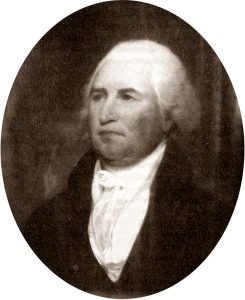
Edward Bancroft (aka Edward Edwards), Franklin’s American secretary, was in the pay of the British, a fact not discovered until he had been dead nearly seventy years. Handsomely compensated by the British, Bancroft received a salary of £500 a year, a recruitment bonus of £400, and, later, a pension of £200 per year.[2] By 1780, his annual salary had increased to £1,000. He was also promised a future baronetcy and seat in Commons after the war, neither of which ever materialized. Bancroft made a weekly drop of documents placed in a sealed bottle and left in a hole at the foot of a tree on the south terrace of the Tuileries every Tuesday.[3]
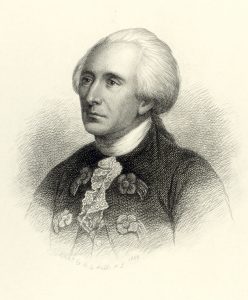
Bancroft, though prolific, was hardly the only leaker. Arthur Lee was highly critical of the security practices of the Commission, to the extent that the other members considered him a paranoid crank. To his credit, he was the only one who identified Bancroft as a security problem, though it is unclear whether this was his insight or simply his suspicion of everyone. But even Lee was not immune to slipshod security. On a trip to Berlin seeking financial aid, he made the mistake of leaving his journal in his hotel room when he went to dinner. British operatives broke into his room, stole the journal, and proceeded to frantically transcribe the contents. When Lee returned early, they unsuccessfully attempted to stall him until the journal could be put back. They later returned it to the hotel staff, who in turn handed it back to Lee with some vague explanation about a theft.[4] The journal information, not in code, significantly increased difficulties in shipping military supplies to America and resulted in the abandonment of a shipbuilding project.[5] Lee would also later hire a secretary of his own who, like Bancroft, was a British agent.
Several other Americans, including Reverend John Vardill, Paul Wentworth, and a cast of other smaller players (including, according to some rumors, John Williams, a distant relative of Franklin), were also utilized by British intelligence. It was Vardill who recruited Joseph Hynson and another American, Jacobus Van Zandt into the service of the British. Both were living a generally profligate life in England at the time and shared the same boarding house there.
Nevertheless, Hynson gained the trust of the Americans, working mainly with Deane. In the course of that relationship, he was recruited by Deane to shuttle six months of diplomatic correspondence from the American commissioners to the United States Congress on the Duc De Chartres, under a French flag and nominally commanded by a French captain.
Hynson and his handlers set up a plan by which the ship would be navigated into a choreographed British ambush. The British would seize the documents from (passenger) Hynson. In a letter, a British intelligence agent advised Sir John Hamilton, captain of HMS Hector, of what to do once Hynson’s ship was captured:
her real Master or Owner, whose name is Hynson, who is a lusty black looking man, and will, as it is expected, endeavour to pass for a Passenger . . . And, upon your discovering the said Hynson, or any other Englishman, to search very closely & narrowly their Persons, Cabbins, Chests &c (but more particularly Hynson’s) for dispatches and Papers, and to secure all such as you shall find in their custody or any where else on board the sd vessel[6]
Was it overkill, then, to acquire the actual documents, since the British were receiving regular summaries of all diplomatic activity between France and the American Commission from Bancroft? Maybe, but the King and Lord North did not fully trust that they were getting the right story, or the whole story from the American, Bancroft. The adage of “trust but verify” comes to mind and Hynson’s hijacked documents were the King’s verification of authenticity. King George called the operation “the Hynson business,” yet even bringing Hynson into the game and getting the original documents didn’t erase his distrust of intelligence. In one communication, he wrote “I have ever doubted whether any trust could be reposed in Hynson; I am now quite settld in my opinion that he as well as every other spy from N. America is encouraged by Deane and Franklin and only gives intelligence to deceive me.”[7]
The American commissioners appeared to unintentionally thwart the British plan when they sent the dispatches earlier than expected, with Capt. John Folger on his ship Benjamin. Just to add another familial connection to the mix, Folger was a distant relative of Franklin (Franklin’s mother was Abiah Folger). The earlier send date resulted in a British workaround that was much riskier and would cost Hynson his cover as a double agent. Providentially, Hynson had been assigned by Deane to deliver the dispatches to Folger. Before he gave the packet to the captain, Hynson removed the dispatches, substituted an equal amount of blank paper, and resealed the pouch as best he could. The tampered pouch of dispatches was then taken by an unsuspecting Folger, who had no reason to look at the content and likely was instructed not to do so. For this deed and other smaller ones, Hynson received a one-time payment of £200 and was promised an annual pension of the same amount.[8]
The commissioners usually didn’t depend on a single source, making multiple copies of communications and sending them on separate ships. This tactic was a two-edged sword—it increased the probability of a communication getting to its target, but it also increased the probability of a copy being intercepted. Some copies didn’t make it at all. An example occurred in 1777 when two American warships, Wickes’ Reprisal and Capt. Henry Johnson’s Lexington, were ejected from French ports and set out for America carrying copies of some of the dispatches included in the Hynson batch.[9] Lexington was captured by a British cutter two days into its voyage. Johnson tossed all the correspondence overboard. Reprisal sank in a storm off Newfoundland, taking the documents down with it. As such, it is hard to know which of the documents Hynson intercepted got through to Congress anyway (five different copies of the document mentioned above were sent).
We do know that all passed into British hands, which was really the point. Keeping them away from Congress was a secondary benefit. Communications from Congress were subject to similar risks, so the commissioners were often lacking in direction from Congress, at one point writing:
It is now more than 4 Months since Mr. Franklin’s Departure from Philadelphia, and not a Line from thence written since that time has hitherto reached either of your Commissioners in Europe . . . Our total Ignorance of the truth or Falsehood of Facts, when Questions are asked of us concerning them, makes us appear small in the Eyes of the People here, and is prejudicial to our Negotiations.[10]
Folger, as ordered, made haste to the American continent, making a less-than-precise landfall at Wilmington, North Carolina, still a fair distance from Congress. With little in the way of money and credentials, he drew the attention of authorities in North Carolina. His story about transporting documents for the Continental Congress quickly fizzled when the document pouch was opened by North Carolina governor Richard Caswell, and only blank paper was discovered. Folger was, nonetheless, allowed to make his way to Congress, then convening in York, Pennsylvania. He knew he was innocent as far as the missing documents, but he also knew the finger of blame would immediately point at him. Congress was not amused by the blank paper gambit:
Not having received any letters from you since the 26 of May we were severely chagrined yesterday upon the arrival of Capt. John Folgier, who, under the name of dispatches from the Commissioners at Paris, delivered only an enclosure of clean white paper with some familiar letters, none of which contained any political intelligence.[11]
Congress’s response, written by John Witherspoon and James Lovell, went on to question the commissioners’ choice of courier, as well as casting the initial light of suspicion on Folger:
You will see by the within examination of Folgier that he was by no means a discreet person fit to have the charge of what you trusted to him; but, we cannot yet prove that he was wilfully connected with the robbers of the Packet . . . We shall endeavour to find whether the roguery was committed after Folgier left France; but, we must depend upon you to trace the circumstances from the time of your sealing till that of his embarking.[12]
Congress immediately set up an investigatory committee:
The committee appointed to examine J. Folger, respecting the despatches with which he was charged by the commissioners at Paris, laid before Congress his examination, reduced to writing, which was read; Whereupon, Ordered, That the president inform governor Caswell, of North-Carolina, of the purport of the said examination, and request him to examine the persons who came over in the vessel with J. Folger, and inform Congress of every circumstance that may come to his knowledge respecting the said despatches. That the board of war be directed to confine the said John Folger in close prison, till advice can be received from gov. Caswell, or till further orders from Congress.[13]
I was unable to find the committee report, the conclusion of which was that “on the whole, have no proof of any guilt in Mr. Folger: Whereupon, Resolved, That Mr. Folger be permitted to go home, and that his expenses be paid him, as well such as have been already incurred as such as may necessarily accrue on his journey home.”[14] Folger was released May 8, 1778, though the commissioners did not know it yet. The ever-suspicious Lee had already raised doubts about Hynson’s fidelity to the American cause. Hynson pretty much gave up the game when he fled to England, though at this time the commissioners were still not aware he had the dispatches or that he had sent a batch of blank paper received by Congress. Said Deane, who had assigned Hyson in the first place “The wrong-headed, conceited Fool [Hynson] has at last turned out one of the most ungrateful of Traitors . . . has fled into England, there to help himself by telling all & much more than he had knowledge of.”[15]
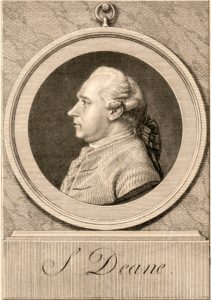
It is unclear when the commissioners received the letter from Congress concerning the missing dispatches, but because of Hynson’s flight to England and whatever they were hearing through their own intelligence channels, they probably had already suspected, if not knew, that Hynson had stolen the documents. This explains the cool reception he received upon his return to Paris in late October. Incredibly, he continued to hound Deane for assignments. He was shunned by Deane and the other commissioners, the former of whom tartly informed him by letter, “I do not write you to reproach you for the ungrateful and treacherous past you have acted; —I leave this to your own Reflections . . . to propose the betraying your new Patrons, in the manner you have wickedly but in vain attempted to betray our form, & with them your Country, I must tell you that no Letters from you will hereafter be received by [signed] Deane.”[16] When Deane was subsequently recalled by Congress for suspected financial malfeasance, they (specifically Committee on Foreign Affairs secretary Thomas Paine) would use the stolen dispatch incident as another factor with which to attack Deane’s reputation.
This brings us to the question of which and how many communications Hynson may have successfully pilfered. We don’t know for sure, as no complete list exists; we do have lists of the major items, courtesy of the correspondence of British Intelligence Director William Eden.[17] They included letters from the Commission to Congress as well as an exchange with French Foreign Minister Comte de Vergennes over the near state of war between France and Britain precipitated by Lambert Wickes’s privateering activities. I reviewed these letters, and found among other things, the following information:
- Details of weapon and military supply purchases, purchases about which Vergennes had claimed ignorance when pressed by the British causing a huge embarrassment for the French. In one letter, the commissioners wrote “For tho’ the fitting out may be cover’d and conceal’d by various Pretences, so as at least to be wink’d at by Government here, because those pretences afford a good Excuse for not preventing it.”[18]
- Evidence of the growing fissures between members of the American Commission, and some indications of a willingness by Franklin and Deane to accept a compromise agreement with Britain (before the British surrender at Saratoga).[19]
- Lists of French military officers volunteering to aid the American cause. One letter notes that “The Desire military Officers here of all Ranks have of going into the Service of the United States, is so general and so strong as to be quite amazing. We are hourly fatigu’d with their Applications.”[20] Although these lists yielded stalwarts like Lafayette and De Kalb, the flow of officer candidates from France became an irritation stateside for George Washington. The deluge of volunteers sent by the Commission, many of whom sought high rank, caused understandable discontent among American officers and a glut of officer contenders (some deserving, most not).
- Updates of activities to finance the war, including funding promises from the French as well as diplomatic activities to enlist the help of other countries (Spain, Prussia, Portugal among others).
- Information on naval and privateering activities (of which the British, having been the victims, were likely already keenly aware). This included, eventually, a discussion of French plans to expel American cruisers from its ports (though only when it was safe to do so). There was also discussion, probably unrealistic, of getting even more aggressive: “Burning or Plundering Liverpool or Glascow would do us more essential Service than a Million of Treasure and much Blood spent on the Continent.”[21]
- Details of French preparations, particularly ship-building, for a possible war with Great Britain.
- A long, rambling rumination by Franklin comparing American and British credit-worthiness across seven criteria and (amazingly) rating the United States as superior in all. This was possibly to use as selling points when trying to pry credit out of other European countries.
Continuing to be shut out by the commissioners in Paris and fearing for his life, Hynson eventually returned to England. Those fears were justified: One French supporter of the American Revolution, for example, stated that he “intend[ed] to get Hynson command of a frigate . . . if I catch him by this bait, he certainly will not take it to England.”[22] Hynson completed a few more espionage assignments on behalf of the British, took a position in the British Navy, and settled in England after the war. After courting Isabella Cleghorn, he ended up marrying her sister Elizabeth in 1783 (perhaps proving that once a traitor always a traitor!). They went on to have five children. Hynson died in England on January 19, 1817.
Constant leaks from people like Bancroft, as well as one-time events like “the Hynson business” and others, often allowed the British to know what was happening in as close to “real time” as possible in the eighteenth century. There was at least one reported instance where the British reacted to things Vergennes was planning to say before he said them.[23] They also had summaries of the key points of the treaties before they were announced. With their ability to track the illicit French-American trade in military supplies so closely, it is somewhat of a mystery why, with the most powerful navy in the world at their disposal, the British did not, or could not, do more to stop the privateering and military supplying activities, the latter of which made a big difference at Saratoga. “The greatest irony . . . is that while British intelligence activities were highly successful, British policy was a total failure.”[24] Resulting partly from this failure, the Commission succeeded in striking the alliance that helped win the war for America.
[1]P. K. Rose, “A Counterintelligence Debacle: British Penetration of America’s First Diplomatic Mission,” Studies in Intelligence, 41, 4 (1997), 60. This publication is an in-house CIA journal. The quote is footnoted as originating from Burton J. Hendrick, The Lee’s of Virginia (Boston: Little, Brown & Co., 1935), 279.
[2]Rose, “A Counterintelligence Debacle,” 59.
[3]Julian P. Boyd, “Silas Deane, Death by a Kindly Teacher of Treason?,” William and Mary Quarterly, Vol. 16, No. 3 (July 1959), 324.
[4]Rose, “A Counterintelligence Debacle,” 63.
[5]Helen Auger, “Benjamin Franklin and the French Alliance,” American Heritage, Vol. 7, No. 3 (April 1956).
[6]Philip Stephens to John Hamilton, March 8, 1777, Naval Documents of the American Revolution, William Bell Clark, et, al, ed. (Washington, DC: U.S. Government Printing Office, 1964-), 8: 650-651.
[7]Wrapper with Eden’s Endorsement on which is added a Note by the King, in Benjamin Franklin Stevens, Facsimiles of Manuscripts in European Archives relating to America, 1773-1783, Volume 3 (January 1890), Item No. 249.
[8]Rose, “A Counterintelligence Debacle,” 61.
[9]Richard J. Werther, “Captain Lambert Wickes and ‘Gunboat Diplomacy, American Revolution Style’,” Journal of the American Revolution, January 3, 2019, allthingsliberty.com/2019/01/captain-lambert-wickes-and-gunboat-diplomacy-american-revolution-style/.
[10]The American Commissioners to the Committee of Secret Correspondence, March12 [–April 9, 1777], Founders Online, founders.archives.gov/documents/Franklin/01-23-02-0305, accessed December 19, 2018.
[11]The Committee for Foreign Affairs to the American Commissioners, January 12, 1778, Founders Online, founders.archives.gov/documents/Franklin/01-23-02-0305, accessed December 19, 2018.
[13]Minutes of January 12, 1778, Journals of the American Congress From 1774 to 1788, Volume II: From January 1, 1777, to July 31, 1778, inclusive (Washington: Way and Gideon, 1823), 402.
[14]Minutes of May 8, 1778, ibid., 546.
[15]Silas Deane to Jonathan Williams, October 24, 1777, The Deane Papers, Charles Isham, ed. (New York Historical Society, 1887), 200.
[16]Silas Deane to Captain Joseph Hynson, October 26, 1777, Stevens, Facsimiles, Volume 2 (January 1890), Item No. 208.
[17]Eight Wrappers with Eden’s Endorsements covering Papers relative to Hynson’s Business, Stevens, Facsimiles, Volume 2 (January 1890), Item No. 223.
[18]The American Commissioners to the Committee for Foreign Affairs, May 25, 1777, Founders Online, founders.archives.gov/documents/Franklin/01-24-02-0052, accessed December 19, 2018.
[19]Samuel F. Bemis, “British Secret Service and the French-American Alliance,” The American Historical Review, Vol. 29, No. 3 (April 1924), 483.
[20]The American Commissioners to the Committee of Secret Correspondence, 12 March [–9 April 1777], Founders Online, founders.archives.gov/documents/Franklin/01-23-02-0305, accessed December 19, 2018.
[21]The American Commissioners to the Committee for Foreign Affairs, May 26, 1777, Founders Online, founders.archives.gov/documents/Franklin/01-24-02-0055, accessed December 19, 2018.
[22]Donatien Le Ray de Chaumont to Vergennes, April 18, 1778, Stevens, Facsimiles, Item No. 308. De Chaumont was a French aristocrat and major supporter of the Revolution.
[23]Boyd, Silas Deane, Death by a Kindly Teacher of Treason?, 324





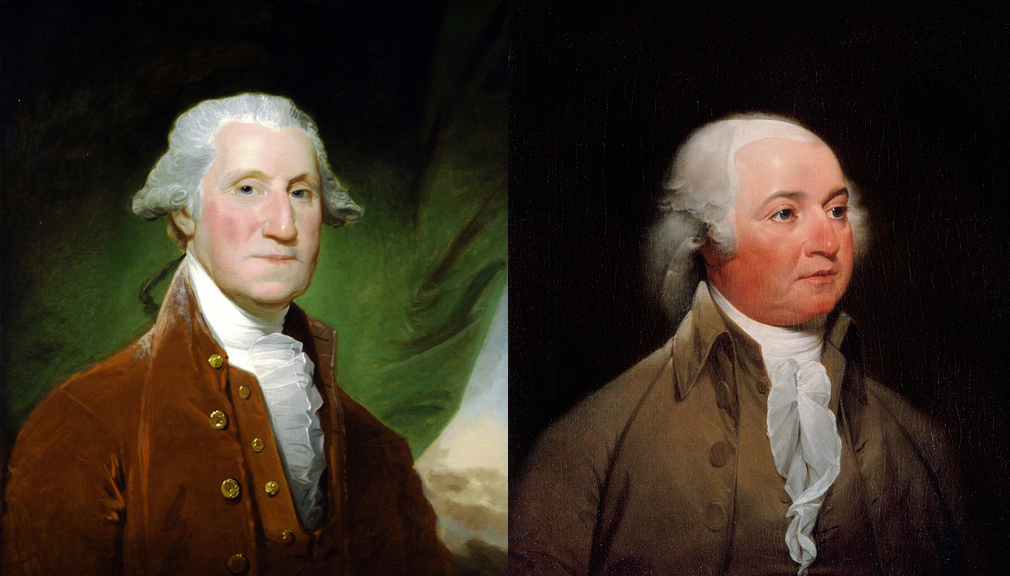

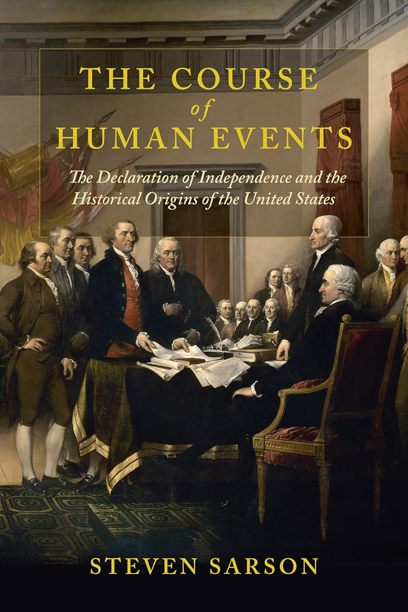

13 Comments
Richard, a very good summary of just how leaky the Paris Commission was during the Revolution. As to British penetration of French efforts, their port surveillance networks along the channel had been established at least since the Seven Year’s War and were quite effective in providing advance details of shipping – a reduced British naval presence prohibited effectively follow-up on much of the intelligence. The British also had spies in senior French Government positions, but that is another story.
I am glad you found my article so useful.
Thanks, Ken. It led me to buy your book as well! Great stuff!
Question to Richard Werther: You state that the Rev. John Vardill recruited Jacobus Van Zandt into the service of British Intelligence. Was this the same Van Zandt who was a blacksmith in Poughkeepsie, NY and advised on location of the chain put across the river? If so, can you suggest sources for this claim of his being a spy or whatever for the British? Very grateful for your help. Bevis Longstreth
Bevis: Thanks for the question. At this time I don’t know the answer as to whether we’re talking about the same Van Zandt. He played a bit part in my story and I really didn’t go down that path with my research. I will go back and see what I’ve got or if I can find out anything more about him and post it here. I can definitely at least give you the sources I consulted to mention him in my story, even if I can’t determine if he was the Poughkeepsie blacksmith.
Bevis, I am away from my reference notes at the moment, but believe these are two separate Van Zandts. As you are aware, Jacobus Van Zandt was a somewhat common name in Dutch settled Hudson River areas. There was another Jacobus Van Zandt who was a leader in the New York City area Sons of Liberty prior to the military conflict. However, the blacksmith you note was located a good distance from the then city. Sorry I cannot be of more assistance.
Excellent, informative, and obviously well-researched piece, Richard. One wonders, on a purely speculative basis, whether the Royal Navy’s failure to act aggressively on the copious intell provided, in at least some instances might possibly be attributable to Whig politics/sympathies amongst some in command, at least before overt French intervention?
Interesting speculation, Rand. It goes hand-in-hand with the same speculation about the army and its commanders.
In the case of the navy, I also wonder if the navy’s inactivity might be, at least partially, the result of their operational state. Like the army, the navy had been reduced in size following the Seven Years War so they suffered from a shortage of vessels and crews. In addition, most of their fleets consisted of older ships, particularly those of the highest rates–it cost a lot to build and maintain shipping. The situation only became worse once France and other continental nations threatened to enter the war spreading the already thin navy even further around the world.
Correct, PIers Mackesy, The War for America, 1775-1783, provides an excellent description of British naval readiness. This includes a lack of shipbuilding facilities so that they had to contract out the building to private contractors and a lack of materials that required rapid cutting of New Hampshire’s forests in order to get the needed pine masts to England.
I found an interesting letter in the New Haven Museum and Historical Society in which a local attorney oversaw the “first of its kind” log rafting adventure coming down the Connecticut River from the NH Grants to the Sound to load onto British ships for transport to England for this purpose. Fascinating stuff.
I recently came across a small example of the status of the navy in 1774. Ten years earlier, when Samuel Holland had been ordered to conduct his General Survey of the Northern District, he had a need for a ship to use in transport, taking soundings, etc. In response, the navy had refitted a merchant ship specifically for Holland’s use and renamed it “Canceaux.” When orders came to blockade the port of Boston in 1774, the navy lacked sufficient vessels for the job so, in spite of Admiral Graves’ support for the survey, he reluctantly took back the “Canceaux.”
Regarding the log drive, I wonder if it began above or below the Great Falls at what is now Bellows Falls. Having grown up a couple hundred yards from them and climbed and crawled over them, I can visualize what it must have been like sending logs down over the three-quarters of a mile of rocks and ledges. I’ve seen pictures of later log drives above and below the falls but none showing what they did between the two.
For what it is worth, I agree with Mike’s analysis that inadequate naval capabilities were the primary reason the British Government could not react effectively to timely and accurate intelligence from Admiralty port-watching networks along the channel coast.
This interesting article got me thinking about spying and intelligence in the period. Without doing any in-depth research on the subject, it strikes me that the eighteenth-century attitude towards spying seems different than today’s (what a surprise). In the process of researching and recreating a unit that spent most of its time going over a hundred miles from their base into Canada to watch the Crown forces there, I have encountered a number of incidents of spying, double-agents, and people being captured. What I have found is that people readily provided information to the other side and, at times, even worked with the other side for a period of time. In the majority of incidents, the other side does not really seem that upset over the whole deal. The case of Benedict Arnold and the executions of Nathan Hale, John André, and a handful of others who had been caught spying seem to be abnormalities. Makes me wonder if this “Hynson Business” might fall into that ho-hum category.
My research would indicate that being considered a spy was not a good thing during the Revolutionary War. Both sides considered “spies” to be of questionable ethics and certainly not “gentlemen” but still considered “traitors” as vile. At the local level throughout the colonies harsh treatment was handled out to those accused, yet alone proven, to be spies. However, as much of this often involved settling personal and business scores, records are slanted and scarce. John Jay’s records in the Hudson Valley are the exception.
Both militaries, being more structured, were more reasonable in their response to catching various spies. My book provides numerous examples of how spies were handled by both sides. Their fate was often predicated upon local conditions and who was in charge.
A fascinating story. Is there any possibility that Elizabeth and Isabell Cleghorn are the same girl? They’re English and Scottish forms of the same name, and a girl referred to as Isabell might appear in records as Elizabeth…
Also, a trivial point – Hynson was supposed to sail to America in command of the (small but fast) sloop “Dolphin”, not the (larger and more impressive) frigate “Duc de Chartres”, though he might have hoped for command of the bigger ship – both Silas Deane and the procurement project’s French sponsor Chaumont reckoned that he had missed out on several opportunities of a more prestigious command.